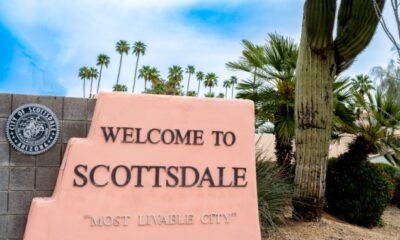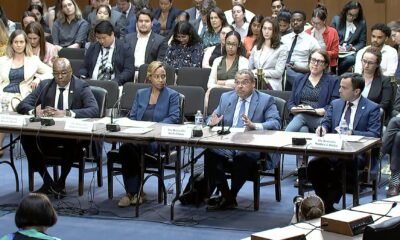arizona
Judge Weighs Colorado’s Antitrust Battle Over Kroger-Albertsons Merger

A Denver judge is set to determine the legality of the proposed merger between grocery giants Kroger and Albertsons after a three-week trial concluded on Thursday. Colorado state attorneys assert that the merger violates antitrust laws.
During closing arguments, Assistant Attorney General Arthur Biller argued that Kroger will likely increase prices whenever possible, stating, “Kroger will raise prices whenever they think they can profit from doing so.” This sentiment echoes concerns about the impact on consumers if the merger proceeds.
Kroger is seeking to acquire 2,271 Albertsons stores as part of a plan announced in October 2022. In Colorado, Kroger’s King Soopers and City Market stores compete with Albertsons’ Safeway and Walmart. To maintain some level of competition, Albertsons aims to divest a number of stores to C&S Wholesale Grocers, a move that has raised skepticism among state officials regarding C&S’s ability to effectively operate these stores.
Biller expressed doubt about C&S’s capabilities, highlighting its track record of closing stores rather than managing them: “They have a decades-long strategy of buying and closing stores.” He argued that if the merger takes place, the competition landscape in Colorado would weaken significantly.
Kroger’s attorney, David Wolf, countered Biller’s claims, suggesting that C&S is transitioning to a new business model post-2020 pandemic. He urged the court to broaden its perspective on the competitive landscape, pointing to other entities like Amazon and Costco as major players in the grocery sector.
The trial showcased contrasting expert opinions on the merger. Kroger presented antitrust economist Mark Israel, while the state relied on economist Nitin Dua. Despite both economists agreeing that Kroger does not directly compete with small health food retailers and dollar stores, their assessments diverged on the merger’s overall impact.
Israel claimed a broader market perspective, while Dua maintained that the merger would diminish competitive strength within Colorado’s grocery market. Wolf explained Kroger’s use of customer interaction data—not for individual sales, but to enhance advertisements for brand companies targeting specific demographics.
“Grocery shoppers in Colorado will pay more and get less if the state gets its way,” Wolf warned, urging the court to dismiss the state’s antitrust concerns. According to him, Kroger aims to offer prices close to Walmart’s without sacrificing value.
In February, Colorado Attorney General Phil Weiser initiated a lawsuit against both companies, arguing that the merger would hinder competition and lead to increased prices. Following the lawsuit, Judge Andrew Luxen granted a temporary injunction in July, halting the merger’s progression pending trial outcomes.
Meanwhile, the Federal Trade Commission also filed a lawsuit against Kroger and Albertsons in February, seeking to block the merger at the federal level. A decision from U.S. District Court Judge Adrienne Nelson is anticipated soon after a hearing held in September, and another antitrust suit is still pending in Washington state.
As parties await Judge Luxen’s ruling, he indicated that a status hearing might be called within three days if any of the other pending suits receive a decision beforehand. Luxen has stated his intention to issue a comprehensive order without allowing the parties to vet it for confidentiality, affirming his commitment to transparency: “I will be issuing one order. My position is I am responsible to spell out the reasons I have for making these decisions.”


















